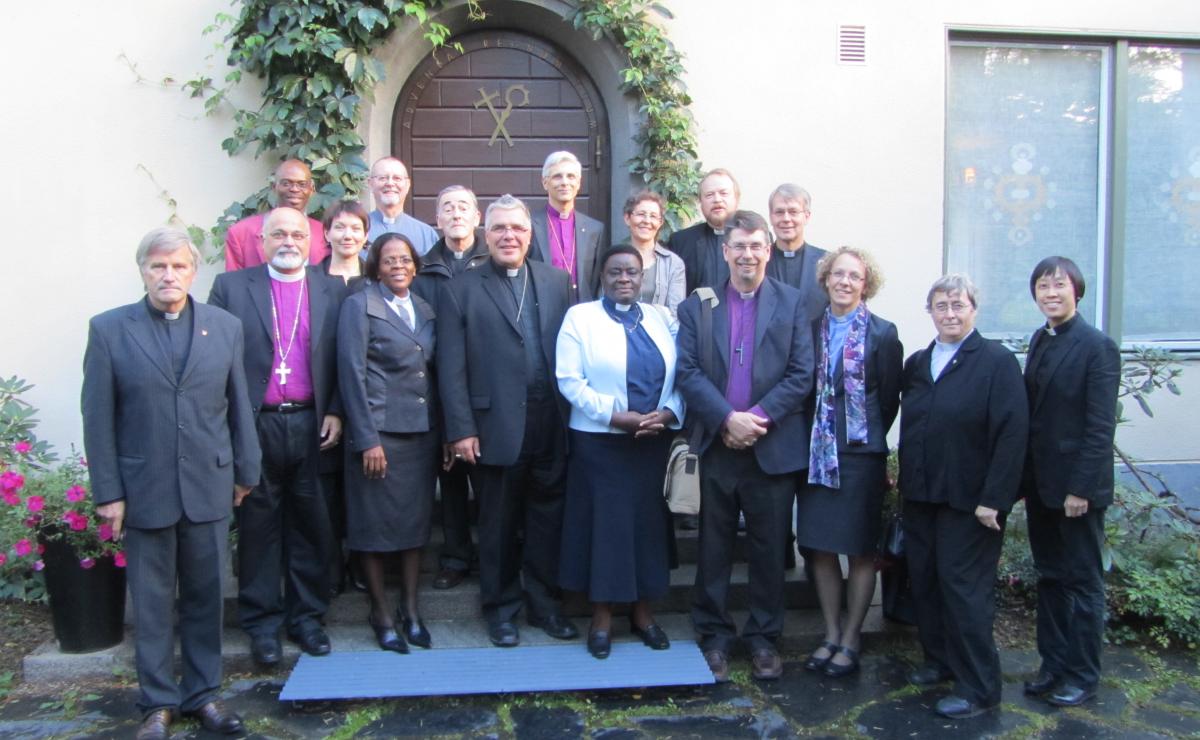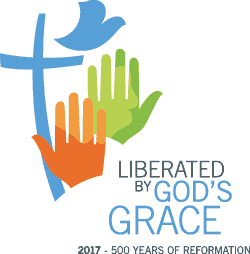Deepening Anglican-Lutheran Relationship

New Committee Will Map Ongoing Cooperation
HELSINKI, Finland/GENEVA, 4 October 2013 (LWI) - Lutherans and Anglicans have begun a new series of conversations designed to strengthen relations and cooperation between the two traditions and highlight ways to mark together the 500th anniversary of the Reformation in 2017.
Meeting in Helsinki, Finland, 19-25 September, the first meeting of the new three-year session of the Anglican-Lutheran International Coordinating Committee (ALICC) began monitoring existing relations between the two global communions and encouraging cooperation where formal agreements do not yet exist.
The Lutheran World Federation (LWF) hosted the meeting assisted by the Evangelical Lutheran Church of Finland (ELCF). It was co-chaired by Bishop Mauricio Andrade, Primate of the Anglican Episcopal Church of Brazil, and Bishop Michael Pryse of the Eastern Synod of the Evangelical Lutheran Church in Canada.
The committee heard regional reports of cooperation and began mapping regional agreements between Lutherans and Anglicans. It will urge churches in both denominations to provide information to assist with the task.
The committee has also initiated a process promoting Anglican-Lutheran collaboration in the observance of the 2017 Reformation anniversary and hopes to provide study materials based on the LWF’s official theme for the commemoration, “Liberated by God’s Grace.”
The study materials, which will be geared to all age groups, will highlight the 16th century Reformation’s relevance today while noting that the process of reformation is ongoing. The committee is centering its anniversary efforts and all its work under the theme “communion in the mission of God.”
Bishop Matti Repo of the ELCF Diocese of Tampere invited committee members to the diocese for worship and conversation regarding initiatives taken alongside its partner, the Diocese of Manchester in the Church of England.
The two dioceses cooperate in preparing youngsters for confirmation and in exploring urban theology. Tampere hosts an English-speaking international congregation in one of its churches and provides clergy to assist the Anglican chaplaincy in Helsinki.
Exciting Ecumenical Work
“We were encouraged by the exciting ecumenical work of the Church of Finland, as demonstrated by the Diocese of Tampere, especially their confirmation exchange program with the Church of England,” noted Canon Dr Alyson Barnett-Cowan, Anglican co-secretary of the committee.
The ALICC was also welcomed to the home of Metropolitan Ambrosius, Orthodox Bishop of Helsinki, who updated members on the current events in the Orthodox Church of Finland and the work of the Sofia Center, where the committee met.
The committee also attended an Anglican worship service in the Old Church of Tampere, presided over by Rev. Tuomas Mäkipää, a Lutheran who was ordained an Anglican priest to the Chaplaincy of St Nicholas in Helsinki in 2010.
“The Anglican-Lutheran dialogues and cooperation have been one of the success stories of the ecumenical movement in recent decades. Several regional agreements have been signed between Anglican and Lutheran churches, with some of them, such as the Porvoo Common Statement and the Waterloo Declaration, having declared full communion between the respective churches,” commented Rev. Anne Burghardt, LWF study secretary for ecumenical relations, who serves as ALICC Lutheran co-secretary.
“It was good to see that there is an interest on both sides to deepen this good relationship and to encourage more practical cooperation,” added Burghardt.
“The fact that full communion has been reached in many regions enables us to concentrate on reflecting upon the question of how to express our Christian witness together, including cooperation on a grass roots level and in diakonia as well as among institutions of theological education and formation,” she noted.
The Helsinki meetings were cordial and fruitful, the committee said. “As this was the first meeting of this group, what was impressive was how quickly people learned to work with each other and how everyone contributed to the plans for the work,” said Barnett-Cowan.
The committee continues to meet annually until 2017.

